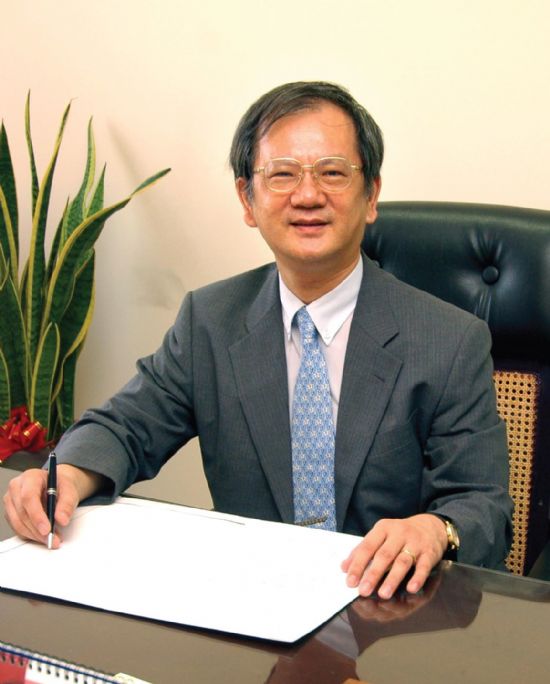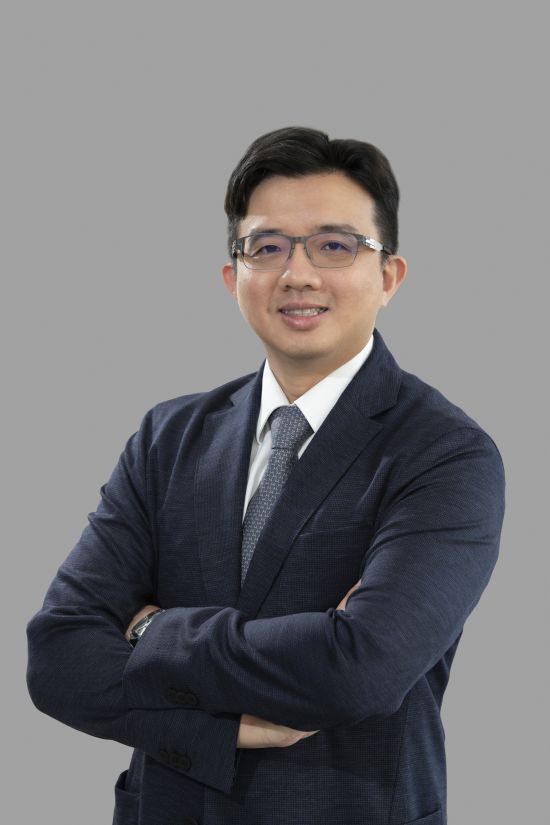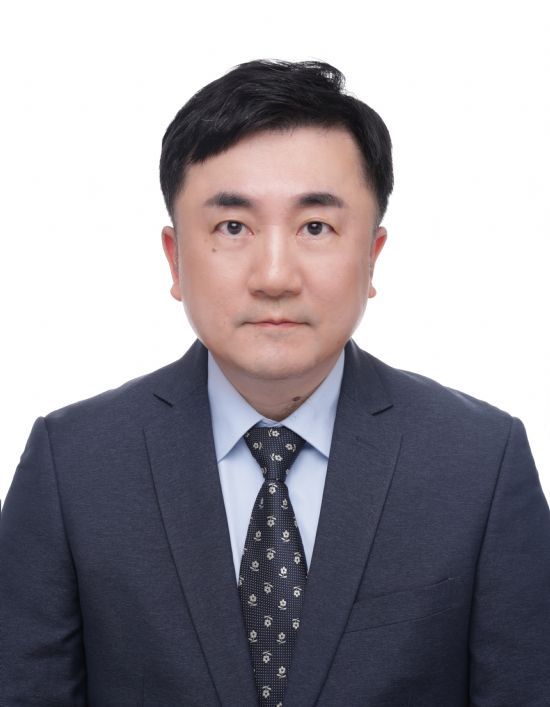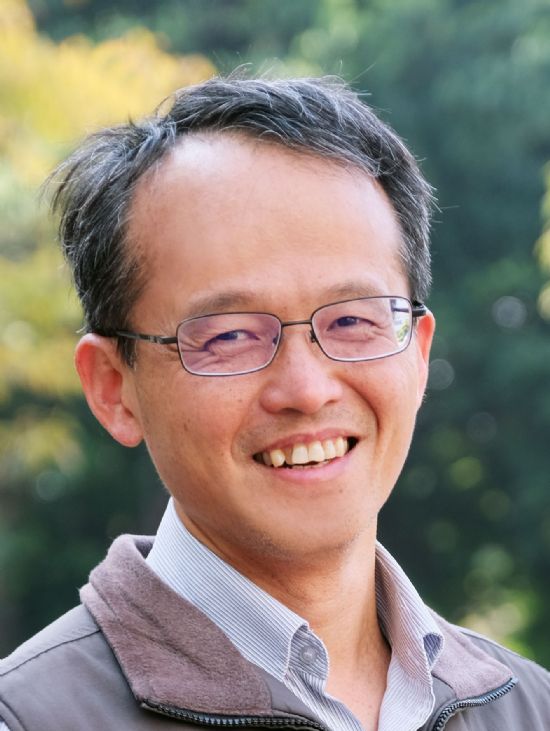Time slot's time in Taipei (GMT+8)
2025/11/21 14:00-17:30 Room 201 ABC
- Kick-on Seminar VII
Artificial Intelligence (AI): The Roadmap for Precision Medicine and Individualized Management
- Time
- Topic
- Speaker
- Moderator
- 14:00-14:30
- From AI to AGI: does the technology quick evaluation impact on the reality of clinical neurology?
- Speaker:
Chou-Ching Lin
- Moderator:
Ching-Kuan Liu
- Ching-Kuan Liu
- MD, Ph.D.
-
Chair Professor, Institute of Precision Medicine, National Sun Yat-sen University
Consultant Neurologist, , Dept. of Neurology, Kaohsiung Chang Gung Memorial Hospital
E-mail:ckliu@mail.nsysu.edu.tw
Executive Summary:
Prof. Ching-Kuan Liu, MD, PhD was born in Kaohsiung, Taiwan in 1956. He graduated from School of Medicine Kaohsiung Medical University (KMU) with Honors such as commencement address for student on commencement ceremony and medals of Four Characteristics in 1982. He received residency training in Neurology at KMU hospital. And got master degree and PhD degree from Graduate Institute of Medicine at KMU as distinguished graduates. He took the Neurobehavior Fellowship Program and was a clinical Instructor at Reed Neurological Institute of UCLA from 1988 to 1990. His research interest focused on Neurobehavior, stroke, Dementia and related disorders. He was the former President of Taiwan Neurological Society, founding president of Taiwan Dementia Society and Kaohsiung Dementia Association. He also was one of the pioneer of recent telemedicine in Taiwan and was granted as the distinguished contribution award in 2014. In academic experience, he was the former director of Department of Neurology, Graduate Institute of Behavioral Sciences, Dean of TnfoTech of KMU, vice-superintendent of KMU hospital, Superintendant of Kaohsiung Metropolitan Hsia-Kang Hospital. He just finished his terms as President of Kaohsiung Medical University. He earned the models of Taiwan Medical Doctors in 2015. His main interest are neurobehavioral consequences of neurological disorders. Currently, he is working with a team in applying AI to assist the diagnosis of dementia and AD.
Prof. Ching-Kuan Liu, MD, PhD was born in Kaohsiung, Taiwan in 1956. He graduated from School of Medicine Kaohsiung Medical University (KMU) with Honors such as commencement address for student on commencement ceremony and medals of Four Characteristics in 1982. He received residency training in Neurology at KMU hospital. And got master degree and PhD degree from Graduate Institute of Medicine at KMU as distinguished graduates. He took the Neurobehavior Fellowship Program and was a clinical Instructor at Reed Neurological Institute of UCLA from 1988 to 1990. His research interest focused on Neurobehavior, stroke, Dementia and related disorders. He was the former President of Taiwan Neurological Society, founding president of Taiwan Dementia Society and Kaohsiung Dementia Association. He also was one of the pioneer of recent telemedicine in Taiwan and was granted as the distinguished contribution award in 2014. In academic experience, he was the former director of Department of Neurology, Graduate Institute of Behavioral Sciences, Dean of TnfoTech of KMU, vice-superintendent of KMU hospital, Superintendant of Kaohsiung Metropolitan Hsia-Kang Hospital. He just finished his terms as President of Kaohsiung Medical University. He earned the models of Taiwan Medical Doctors in 2015. His main interest are neurobehavioral consequences of neurological disorders. Currently, he is working with a team in applying AI to assist the diagnosis of dementia and AD.
- Time
- Topic
- Speaker
- Moderator
- 14:30-15:00
- Large Language Models in Medicine: Benefits and Challenges
- Speaker:
Sheng-Fu Liang
- Moderator:
Kai-Cheng Hsu
- Kai-Cheng Hsu
- MD, PhD
-
President, Acer Medical
E-mail:edward.hsu@acer-medical.com
Executive Summary:
Dr. Kai-Cheng Hsu is a board-certified neurologist specializing in dementia, stroke, and sleep disorders. He received his M.D. from National Taiwan University and holds a Ph.D. in Chemical Engineering and an M.S. in Electrical Engineering from National Chung Cheng University.
From 2018 to 2020, he was a research fellow at the National Institute of Neurological Disorders and Stroke (NINDS), NIH, where he focused on AI and bioinformatics for neurological disorders.
He later served as Director of the AI Center at China Medical University Hospital (2020–2023), leading the development of AI tools integrated into clinical practice and approved by the Taiwan FDA.
In 2024, Dr. Hsu joined the Industrial Technology Research Institute (ITRI) to advance AI research in medical imaging, biomedical signals, and EHRs. Since April 2025, he has been President and Chief Medical Officer of Acer Medical, driving the clinical adoption and industrialization of AI-powered healthcare solutions.
Dr. Hsu’s work has been widely published in peer-reviewed journals and reflects his commitment to bridging medicine and engineering to improve patient care.
Dr. Kai-Cheng Hsu is a board-certified neurologist specializing in dementia, stroke, and sleep disorders. He received his M.D. from National Taiwan University and holds a Ph.D. in Chemical Engineering and an M.S. in Electrical Engineering from National Chung Cheng University.
From 2018 to 2020, he was a research fellow at the National Institute of Neurological Disorders and Stroke (NINDS), NIH, where he focused on AI and bioinformatics for neurological disorders.
He later served as Director of the AI Center at China Medical University Hospital (2020–2023), leading the development of AI tools integrated into clinical practice and approved by the Taiwan FDA.
In 2024, Dr. Hsu joined the Industrial Technology Research Institute (ITRI) to advance AI research in medical imaging, biomedical signals, and EHRs. Since April 2025, he has been President and Chief Medical Officer of Acer Medical, driving the clinical adoption and industrialization of AI-powered healthcare solutions.
Dr. Hsu’s work has been widely published in peer-reviewed journals and reflects his commitment to bridging medicine and engineering to improve patient care.
- Time
- Topic
- Speaker
- Moderator
- 15:00-15:30
- Artificial intelligence in neurophysiology: why does it matter and what is the appraisal?
- Speaker:
Tsung-Lin Lee
- Moderator:
Pei-Hao Chen
- Pei-Hao Chen
- MD, PhD
-
Director, Dementia Prevention and Treatment Center, MacKay Memorial Hospital
E-mail:a7662888@gmail.com
Executive Summary:
Dr. Pei-Hao Chen is a distinguished neurologist and researcher based at MacKay Memorial Hospital in Taipei, Taiwan, where he currently serves as Director of the Dementia Prevention and Treatment Center. He is also an Adjunct Associate Professor at MacKay Medical College. With over two decades of clinical experience and leadership in neurology, Dr. Chen specializes in dementia, Parkinson's disease, and related neurodegenerative disorders.
Dr. Chen is renowned for his integrative research bridging clinical neurology with engineering and data science. He has published extensively on gait analysis, blood biomarkers, and machine learning for predicting cognitive decline, with multiple first- or corresponding-author papers in high-impact journals. He also holds patents for innovative mobility-assistive devices.
In addition to his clinical and research roles, Dr. Chen is a key figure in national policy, serving as Convener of the Public Policy Committee of the Taiwan Dementia Society and Chairperson of the Neurorehabilitation, Long-term Care, and Gerontology Group of the Taiwan Neurological Society. His recent government-funded projects focus on multimodal prediction models and brain stimulation for cognitive enhancement.
Dr. Pei-Hao Chen is a distinguished neurologist and researcher based at MacKay Memorial Hospital in Taipei, Taiwan, where he currently serves as Director of the Dementia Prevention and Treatment Center. He is also an Adjunct Associate Professor at MacKay Medical College. With over two decades of clinical experience and leadership in neurology, Dr. Chen specializes in dementia, Parkinson's disease, and related neurodegenerative disorders.
Dr. Chen is renowned for his integrative research bridging clinical neurology with engineering and data science. He has published extensively on gait analysis, blood biomarkers, and machine learning for predicting cognitive decline, with multiple first- or corresponding-author papers in high-impact journals. He also holds patents for innovative mobility-assistive devices.
In addition to his clinical and research roles, Dr. Chen is a key figure in national policy, serving as Convener of the Public Policy Committee of the Taiwan Dementia Society and Chairperson of the Neurorehabilitation, Long-term Care, and Gerontology Group of the Taiwan Neurological Society. His recent government-funded projects focus on multimodal prediction models and brain stimulation for cognitive enhancement.
- Time
- Topic
- Speaker
- Moderator
- 16:00-16:30
- Early detection of Parkinson’s disease using AI techniques and image analysis
- Speaker:
Chung-Yao Chien
- Moderator:
Chou-Ching Lin
- Chou-Ching Lin
- MD PhD
-
Professor, Neurology, Department of Medicine, National Cheng Kung University
E-mail:CXL45@mail.ncku.edu.tw
Executive Summary:
Chou-Ching K. Lin received a Bachelor degree of Medicine from National Yang-Ming University, Taipei, Taiwan in 1988 and an MSc and PhD in biomedical engineering from Case Western Reserve University, Cleveland, OH, USA in 1994 and 1997, respectively. He is a professor in Department of Neurology and an adjunct professor in Department of Biomedical Engineering, National Cheng Kung University. His areas of interest include functional MRI, brain-computer interface (BCI), electrical stimulation of CNS and PNS, and neural network modelling of natural intelligence and artificial intelligence (AI).
Chou-Ching K. Lin received a Bachelor degree of Medicine from National Yang-Ming University, Taipei, Taiwan in 1988 and an MSc and PhD in biomedical engineering from Case Western Reserve University, Cleveland, OH, USA in 1994 and 1997, respectively. He is a professor in Department of Neurology and an adjunct professor in Department of Biomedical Engineering, National Cheng Kung University. His areas of interest include functional MRI, brain-computer interface (BCI), electrical stimulation of CNS and PNS, and neural network modelling of natural intelligence and artificial intelligence (AI).
- Time
- Topic
- Speaker
- Moderator
- 16:30-17:00
- Intelligent Connectomics: Toward Individualized Brain Health Management
- Speaker:
Ching-Po Lin
- Moderator:
Chou-Ching Lin
- Chou-Ching Lin
- MD PhD
-
Professor, Neurology, Department of Medicine, National Cheng Kung University
E-mail:CXL45@mail.ncku.edu.tw
Executive Summary:
Chou-Ching K. Lin received a Bachelor degree of Medicine from National Yang-Ming University, Taipei, Taiwan in 1988 and an MSc and PhD in biomedical engineering from Case Western Reserve University, Cleveland, OH, USA in 1994 and 1997, respectively. He is a professor in Department of Neurology and an adjunct professor in Department of Biomedical Engineering, National Cheng Kung University. His areas of interest include functional MRI, brain-computer interface (BCI), electrical stimulation of CNS and PNS, and neural network modelling of natural intelligence and artificial intelligence (AI).
Chou-Ching K. Lin received a Bachelor degree of Medicine from National Yang-Ming University, Taipei, Taiwan in 1988 and an MSc and PhD in biomedical engineering from Case Western Reserve University, Cleveland, OH, USA in 1994 and 1997, respectively. He is a professor in Department of Neurology and an adjunct professor in Department of Biomedical Engineering, National Cheng Kung University. His areas of interest include functional MRI, brain-computer interface (BCI), electrical stimulation of CNS and PNS, and neural network modelling of natural intelligence and artificial intelligence (AI).
- Time
- Topic
- Speaker
- Moderator
- 17:00-17:30
- Transforming Stroke Medicine: The Emerging Role of AI in Early Detection and Prognosis
- Speaker:
Wei-Chun Wang
- Moderator:
Lung Chan
- Lung Chan
- MD, PhD
-
Vice Superintendent, Taipei Medical University-Shuang Ho Hospital
Professor, Department of Neurology, School of Medicine, College of Medicine, Taipei Medical University
President, Taiwan Stroke Society
E-mail:cjustinmd@gmail.com
Executive Summary:
Dr. Lung Chan is a distinguished neurologist and healthcare leader based in Taiwan. He currently serves as Vice Superintendent of Taipei Medical University - Shuang Ho Hospital and President of the Taiwan Stroke Society. With over two decades of clinical and academic experience, Dr. Chan has made significant contributions in the fields of cerebrovascular disease, neuro-critical care, and neurosonology.
Dr. Chan earned his medical degree from China Medical University and subsequently pursued advanced degrees in public health and health education, obtaining a Master of Science from Fu Jen Catholic University and a PhD from National Taiwan Normal University. His multidisciplinary training underpins his holistic approach to patient care and healthcare system improvement.
He holds a professorship in the Department of Neurology at Taipei Medical University’s School of Medicine, where he is actively involved in teaching and mentoring. Throughout his career, Dr. Chan has led several key hospital departments including Neurology, Medical Quality, and the Stroke Center, playing a pivotal role in enhancing clinical services and integrating diagnostics and therapeutics.
Dr. Chan has also contributed to national neurological and stroke care policy through leadership roles in professional societies, including the Taiwan Stroke Association and the Taiwan Neuro-Critical Care Society. His work reflects a deep commitment to advancing stroke prevention, acute care, and rehabilitation across the region.
Respected for his expertise, vision, and leadership, Dr. Lung Chan continues to shape the future of stroke medicine and neurocritical care in Taiwan and beyond.
Dr. Lung Chan is a distinguished neurologist and healthcare leader based in Taiwan. He currently serves as Vice Superintendent of Taipei Medical University - Shuang Ho Hospital and President of the Taiwan Stroke Society. With over two decades of clinical and academic experience, Dr. Chan has made significant contributions in the fields of cerebrovascular disease, neuro-critical care, and neurosonology.
Dr. Chan earned his medical degree from China Medical University and subsequently pursued advanced degrees in public health and health education, obtaining a Master of Science from Fu Jen Catholic University and a PhD from National Taiwan Normal University. His multidisciplinary training underpins his holistic approach to patient care and healthcare system improvement.
He holds a professorship in the Department of Neurology at Taipei Medical University’s School of Medicine, where he is actively involved in teaching and mentoring. Throughout his career, Dr. Chan has led several key hospital departments including Neurology, Medical Quality, and the Stroke Center, playing a pivotal role in enhancing clinical services and integrating diagnostics and therapeutics.
Dr. Chan has also contributed to national neurological and stroke care policy through leadership roles in professional societies, including the Taiwan Stroke Association and the Taiwan Neuro-Critical Care Society. His work reflects a deep commitment to advancing stroke prevention, acute care, and rehabilitation across the region.
Respected for his expertise, vision, and leadership, Dr. Lung Chan continues to shape the future of stroke medicine and neurocritical care in Taiwan and beyond.








